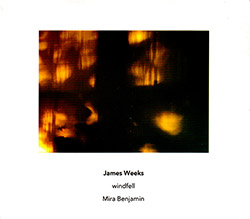
Violinist Mira Benjamin requested British composer James Weeks write a long-duration piece for her, Weeks evoking the image of a violin alone in a remote hill played only by the wind, using an evolving palette of timbral and harmonic material resolving with long sequences of Just Intonation three-part chords, Benjamin also whistling and singing softly.
In Stock
Quantity in Basket: None
Log In to use our Wish List
Shipping Weight: 3.00 units
EU & UK Customers:
Discogs.com can handle your VAT payments
So please order through Discogs
Sample The Album:
Mira Benjamin-violin, voice
James Weeks-composer
Click an artist name above to see in-stock items for that artist.
Label: Another Timbre
Catalog ID: at139
Squidco Product Code: 27571
Format: CD
Condition: New
Released: 2019
Country: UK
Packaging: Cardboard Gatefold
Recorded at St. Paul's Hall, in Huddersfield, United Kingdom, by Simon Reynell.
Another Timbre Interview with James Weeks
Could you tell us about your background in music and how you came to experimental composition?
I received a very traditional English musical education, starting early (I was a cathedral chorister as a child, which was an amazing foundational experience, not only musically), and I knew I wanted to be a composer from the time I was about 8 or 9. I've never thought seriously about doing anything else instead, though of course other things have become important alongside that, particularly conducting. To begin with I loved Renaissance polyphony because that was what we sang in the cathedral, and its intricacy and richness fascinated me. Whenever we did some modern music my ears pricked up too, and I soon found that I didn't share my friends' disparaging comments about it and began to seek it out. By the time I was in my mid-teens I was a confirmed new-music fanatic and composing prolifically. I had a lot of encouragement at school and through my piano teacher I encountered Michael Finnissy at age 17. I spent a year out before university studying with him and four more years with him as a postgraduate, and his teaching and example were what opened the door for me as an artist. He taught in a very holistic way, which suited me, so that learning to compose was never just about the notes on the page and whether they sounded 'effective' (and what did that mean anyway?) but was about Life and everything in it. For me at that time, having passed through a brief phase of complex writing I gravitated towards Cage and experimentalism more generally. Composers like Aldo Clementi, Chris Fox and Chris Newman became important to me then, and I found a lot of freedom and creative excitement in the conceptual spaces between traditionally notated and improvised music, as well as through paring down my materials to the bare minimum (a deliberately assumed 'anti-complexity', which nevertheless didn't rule out the creation of music that was overall complex and multi-layered). I am still happy to make different kinds of work with different kinds of notation in different ways: I've been particularly engaged with making flexible, indeterminate scores with a lot of text instructions for CoMA in the last 4 years, but alongside that I've made pieces that are completely notated, and in great detail, such as the Just Intonation pieces and a madrigal book in 1/5-tones. Early on I was happy to make each piece sound very different from the previous one, but recently I've noticed myself wanting to continue exploring similar materials from piece to piece, some of which appear in windfell, and always to make listening 'fields' in which the listener can aurally wander rather than leading them along a particular path. I'm not really sure if I'm an 'experimental' composer but I would say that my work in general is concerned with speculation, of exploring the unknown, of not-knowing-in-advance, which I suppose is an 'experimental' attitude.
How did windfell come about?
windfell came about because of Mira. She got in touch after we had worked together when she played with the Bozzinis and suggested I make her a long-duration piece. I have written a lot for the violin (my wife is a violinist, in fact) and love the instrument, so the challenge of making something for a single player over the span of an hour was maybe slightly less daunting than trying to do that for an instrument I didn't know so well. Even so, an hour is a crazy amount of time for one player and I spent a long time before I started, trying to imagine what I could do to fill it. (It definitely felt like filling a span of time: time was always a part of this music, almost like time and music were two polyphonic lines making up the piece.) I decided quite early on that I needed to find ways to enrich the timbral and harmonic palette over the course of the hour, and found an answer by considering it as a piece for Mira rather than a piece for violin: so we experimented with singing and whistling and discovered she has a lovely soft singing tone that can blend (and tune) with the violin, creating the long sequences of Just Intonation three-part chords in the second half of the piece. For me the music is inseparable from the player - she doesn't disappear into the music but is foregrounded by it, even though it is in some ways very abstract and rarefied material, requiring an almost 'inhuman' control, one might say. But this is the subject of the work, the human and the inhuman (or not-human), the inside and the outside, our experience of being human and the way we place ourselves within and relate to the 'natural' world outside and around us.
I find the title nicely evocative, but where does it come from and what does it refer to?
It came about through an image I had of the violin surrounded by space and open air: on top of a hill, high-up and remote, played only by the wind. This is the 'wind fell', ('fell' in the Northern English sense) where the breeze moves over the instrument's surfaces, setting the open strings in motion, and leaves brush across the strings as the wind catches them. The whole opening section is imagined as a sounding-out of the instrument, its body and materials, by the environment in which it rests; only later does the human presence of the player get foregrounded in the work. As I say, I'm really interested in this idea of indwelling within the world around us, so (in my mind at least) the piece explores a liminal space where the player keeps disappearing into this 'natural' environment and reappearing again - not in any narrative sense of course, but philosophically speaking. Overall I think the feeling of being in a certain 'place' as well as time comes across in listening to the piece - so the title may help to transport listeners to this imaginary place.
Earlier you spoke of a shift in your work from complexity towards Cage and experimentalism, which is a trajectory that I think quite a few composers and musicians have shared in different ways. Why do you think that has happened? And do you still feel engaged in that process, or has it run its course for you personally, and do you now feel on the edge of another shift?
I think you're right, this particular move from one radical position to its (apparently, but not necessarily) opposite extreme seems to have happened to a number of composers; to try and put it in context as part of a general shift, I'd guess that for young composers naturally drawn to the most exploratory, maybe extreme, certainly speculative, ways of making music there seems to have been a gradual change in the wind over the last few decades, maybe longer, where the radical edge of Complexity has gradually lost the sharpness it had in the 70s and 80s, and the excitement about creating, performing and hearing this music (which is difficult to write and difficult to play, and is mostly appreciated by small groups of cognoscenti) had been superseded by other types of sonic and aesthetic exploration. And meanwhile this wonderfully refreshing (and not so difficult, though as deeply rewarding) experimental repertoire from the 50s, 60s and 70s was experiencing a revival and seemed to open up paths for further exploration in so many different directions. For me this was all happening as I was coming of age as a composer and realising what was and wasn't 'me', and I discovered that what made me happy and at one with the world was to make this much more conceptually and stylistically open work. I embraced very sparse materials, notational experimentation, indeterminacy, and gradually found a way of writing that I think probably contains all of me. To answer your question about where I am now, I would say that I haven't felt consciously engaged in a process of leaving complexity for experimentalism for more than 10 years - I think I've just gone deeper and deeper into the materials and ways of making music that interest me. I don't think I'm on the edge of another shift, in fact I feel I've found so much to occupy me among my present concerns that what I really want to do now is just make a lot more work. Like many composers I've struggled to find the working time and conditions to write consistently, I've never got onto the international residency circuit or anything like that, but I have a job now [at Durham University, UK] which ought to allow me to find a rhythm and do a lot more in the next few years. That's the hope, anyway. Life has a way of throwing the unexpected into your path so I'm not going to get too far ahead of myself... Just enjoy writing, and working with wonderful musicians like Mira Benjamin.
Artist Biographies
• Show Bio for Mira Benjamin "Mira Benjamin is a Canadian violinist, researcher and new-music instigator. She performs new and experimental music, with a special interest in microtonality & tuning practice. She actively commissions music from composers at all stages of their careers, and develops each new work through multiple performances. Current collaborations include new works by Anna Höstman, Scott McLaughlin, Amber Priestley, Taylor Brook and James Weeks. Since 2011, Mira has co-directed NU:NORD - a project-based music and performance network which instigates artistic exchanges and encourages community building between music creators from Canada, Norway & the UK. To date NU:NORD has engaged 79 artists and commissioned 62 new works. Through this initiative, Mira hopes to offer a foundation from which Canadian artists can reach out to artistic communities overseas, and provide a conduit through which UK & Norwegian artists can access Canada's rich art culture. Originally from Vancouver, British Columbia, Mira lived for ten years in Montréal, where she was a member of Quatuor Bozzini. Since 2014 she has resided in London (UK), where she regularly performs with ensembles such as Apartment House, Decibel, and the London Contemporary Orchestra Soloists, and is currently the Duncan Druce Scholar in Music Performance at the University of Huddersfield. Mira is the recipient of the 2016 Virginia Parker Prize from the Canada Council for the Arts. The prize is awarded annually to a Canadian musician in recognition of their contribution to the artistic life in Canada and internationally." ^ Hide Bio for Mira Benjamin • Show Bio for James Weeks "Hailed as 'one of the most inventive young composers and conductors out there' by The Guardian, James Weeks enjoys a growing international reputation both for his own music and for his consummate performances of contemporary repertoire. Born in Blackburn in 1978, he read Music at Cambridge before completing a PhD in Composition at Southampton University, studying with Michael Finnissy. His music has been commissioned and performed by many leading performers including London Sinfonietta, Apartment House, Quatuor Bozzini, Alison Balsom, EXAUDI, Morgan/Dullea, Wandelweiser, New London Chamber Choir, Uroboros Ensemble, Endymion, Anton Lukoszevieze and Christopher Redgate. He has been performed at UK and European festivals and venues including City of London, Spitalfields and Huddersfield Contemporary Music Festivals, Gaudeamus (Amsterdam), Quincena Musical (San Sebastian), de Bijloke (Ghent), Wandelweiser (Düsseldorf, Munich), Weimarer Frühjahrstage and Mafra (Portugal). His music is heard regularly on BBC Radio 3's Hear and Now, and in 2012 he signed to University of York Music Press. Since 2005 the main focus of his music has been on solo and small-ensemble works exploring elemental or primary musical materials and processes, either left bare or built up into polyphonic structures of considerable density. Recent major works include Schilderkonst (for mixed ensemble, 2003-4) Stacking, Weaving, Building, Joining (for any number of players, 2006), the Harmonies of South London series (for various ensembles, 2008-11), Burnham Air (for oboe d'amore, 2008), Hototogisu (for children's choir, 2007), TIDE (for ensemble and electronics, 2007-10), Parnassus (for vocal and string sextets, 2008-9), Mala punica (for eight solo voices, 2008-9), and The Freedom of the Earth (for chorus and instruments, 2011). As a conductor, he is best known for his work with the contemporary specialists EXAUDI www.exaudi.org.uk, the vocal ensemble he founded with the soprano Juliet Fraser in 2002. With them he maintains a busy international touring schedule, collaborating regularly with the world's leading composers, new music soloists and ensembles, and has released six acclaimed CDs, of Finnissy, Fox, Lutyens and Skempton on Mode, NMC and Metier. The ensemble specialises in the most complex new music - performances of Ferneyhough, Dillon, Xenakis, Gervasoni, Birtwistle and Finnissy have won them worldwide praise - and experimental music, often presented alongside repertoire from the Renaissance or early baroque. He was Musical Director of the New London Chamber Choir www.nlcc.org.uk and Orlando Chamber Choir (www.orlandochoir.org.uk) from 2007-2011. In great demand as a guest conductor, he has worked with London Sinfonietta, BBC Singers, L'Instant Donné (Paris), Raschèr Saxophone Quartet, New Music Players, Endymion, IXION, I Fagiolini and Birmingham Contemporary Music Group, with whom he recorded Howard Skempton's Chamber Concerto for NMC. He is also much in demand as a choral animateur and tutor, and regularly leads courses for Dartington International Summer School. He is also active as an organ recitalist, pianist and writer on contemporary music, and broadcasts regularly on early and new music for BBC Radio 3. In 2006 he co-founded the ensemble Kürbis with the composer Claudia Molitor, dedicated to the performance of contemporary and experimental chamber music. The ensemble has performed in London (The Cutting Edge; Spitalfields Festival), Cambridge (Kettle's Yard), and at Soundwaves Brighton and recorded for Radio 3. In 2010 he was Artistic Associate of the Spitalfields Festival (London). He was appointed Associate Head of Composition at the Guildhall School of Music & Drama, London, in September 2012." ^ Hide Bio for James Weeks
7/15/2025
Have a better biography or biography source? Please Contact Us so that we can update this biography.
7/15/2025
Have a better biography or biography source? Please Contact Us so that we can update this biography.
Track Listing:
1. Windfell 59:40
Compositional Forms
Stringed Instruments
Solo Artist Recordings
London & UK Improv & Related Scenes
Ambient & Minimal Music
Unusual Vocal Forms
New in Compositional Music
Search for other titles on the label:
Another Timbre.


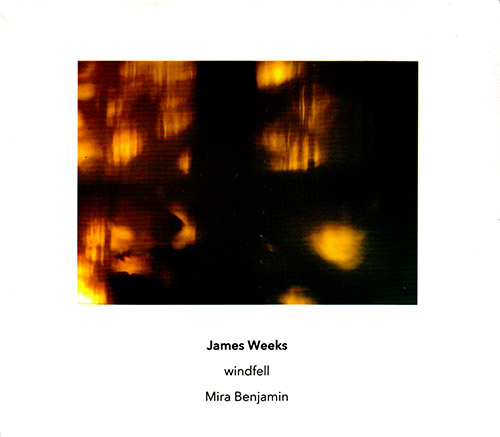

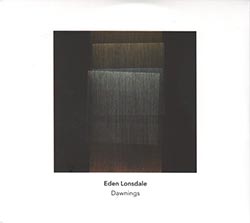


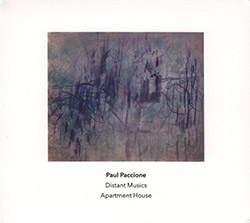


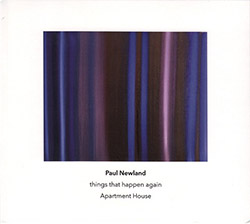

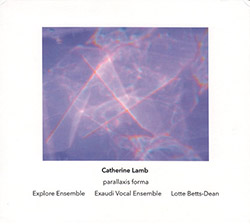
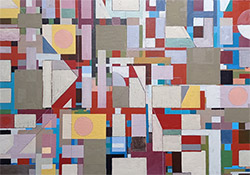

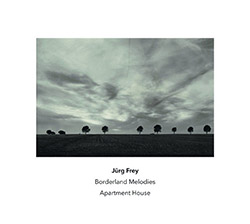
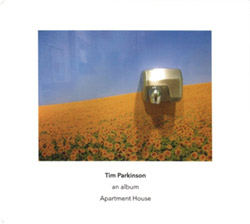
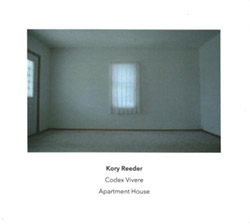
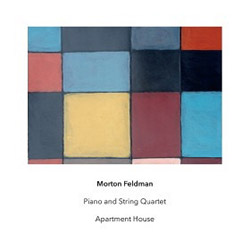
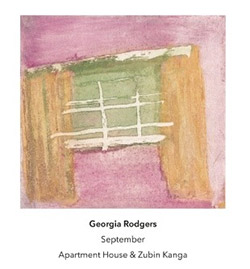
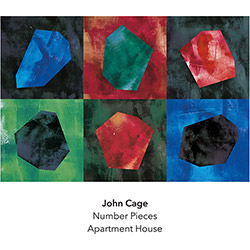
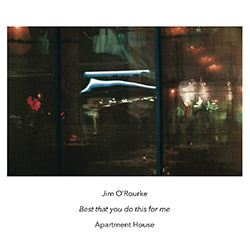


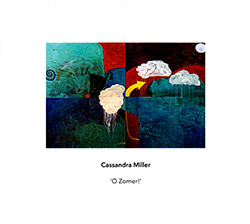
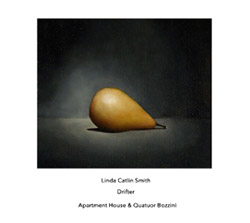
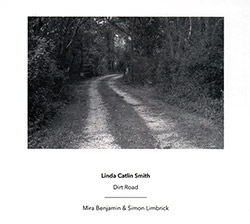






![BlueRing Improvisers: Materia [2 CDs]](https://www.teuthida.com/productImages/misc4/36513.jpg)








![Wheelhouse (Rempis / Adasiewicz / McBride): House And Home [VINYL]](https://www.teuthida.com/productImages/misc4/36462.jpg)
![+DOG+: The Light Of Our Lives [2 CDs]](https://www.teuthida.com/productImages/misc4/36009.jpg)


![Parker, Evan / Jean-Marc Foussat: Insolence [VINYL]](https://www.teuthida.com/productImages/misc4/36398.jpg)










![Deupree, Jerome / Sylvie Courvoisier / Lester St. Louis / Joe Morris: Canyon [2 CDs]](https://www.teuthida.com/productImages/misc4/36404.jpg)



![Eventless Plot | Haarvol: The Subliminal Paths [CASSETTE + DOWNLOAD]](https://www.teuthida.com/productImages/misc4/36232.jpg)










![Eventless Plot | Francesco Covarino: Methexis [CASSETTE + DOWNLOAD]](https://www.teuthida.com/productImages/misc4/36231.jpg)



![Das B (Mazen Kerbaj / Mike Majkowski / Magda Mayas / Tony Buck): Love [VINYL]](https://www.teuthida.com/productImages/misc4/36329.jpg)


![Eternities: Rides Again [CASSETTE]](https://www.teuthida.com/productImages/misc4/36247.jpg)
![Lopez, Francisco: Untitled (2021-2022) [2 CDs]](https://www.teuthida.com/productImages/misc4/36438.jpg)






![Money : Money 2 [2 CDs]](https://www.teuthida.com/productImages/misc4/35894.jpg)




![Klinga, Erik: Elusive Shimmer [VINYL]](https://www.teuthida.com/productImages/misc4/36258.jpg)
![CHANGES TO blind (Phil Zampino): Volume 9 - I Wave on a Fine Vile Mist [CD + DOWNLOAD]](https://www.teuthida.com/productImages/misc4/36061.jpg)

![Wallmart / Rubbish: Asset Protection [split CD]](https://www.teuthida.com/productImages/misc4/35900.jpg)


![+Dog+: The Family Music Book Vol. 5 [2 CDs]](https://www.teuthida.com/productImages/misc4/35897.jpg)
![Kuvveti, Deli : Kuslar Soyledi [CASSETTE w/ DOWNLOAD]](https://www.teuthida.com/productImages/misc4/36107.jpg)

![Brown, Dan / Dan Reynolds: Live At The Grange Hall [unauthorized][CASSETTE]](https://www.teuthida.com/productImages/misc4/36245.jpg)







![Palestine, Charlemagne / Seppe Gebruers: Beyondddddd The Notessssss [VINYL]](https://www.teuthida.com/productImages/misc4/36206.jpg)
![Palestine, Charlemagne / Seppe Gebruers: Beyondddddd The Notessssss [NEON GREEN VINYL]](https://www.teuthida.com/productImages/misc4/36207.jpg)

![Laubrock, Ingrid: Purposing The Air [2 CDs]](https://www.teuthida.com/productImages/misc4/35639.jpg)

![Yoko, Ono / The Great Learning Orchestra: Selected Recordings From Grapefruit [2 CDs]](https://www.teuthida.com/productImages/misc4/35841.jpg)









![Zorn, John / JACK Quartet: The Complete String Quartets [2 CDs]](https://www.teuthida.com/productImages/misc4/35609.jpg)


![Sorry For Laughing (G. Whitlow / M. Bates / Dave-Id / E. Ka-Spel): Rain Flowers [2 CDS]](https://www.teuthida.com/productImages/misc4/35985.jpg)

![Rolando, Tommaso / Andy Moor : Biscotti [CASSETTE w/ DOWNLOADS]](https://www.teuthida.com/productImages/misc4/36106.jpg)


![Electric Bird Noise / Derek Roddy: 8-10-22 [CD EP]](https://www.teuthida.com/productImages/misc4/35970.jpg)








![Elephant9 : Mythical River [VINYL]](https://www.teuthida.com/productImages/misc4/34624.jpg)



![Elephant9 with Terje Rypdal: Catching Fire [VINYL 2 LPs]](https://www.teuthida.com/productImages/misc4/35355.jpg)
![Deerlady (Obomsawin, Mali / Magdalena Abrego): Greatest Hits [VINYL]](https://www.teuthida.com/productImages/misc4/34876.jpg)







![Surplus 1980: Illusion of Consistency [CD]](https://www.teuthida.com/productImages/misc4/35069.jpg)
![Staiano, Moe: Away Towards the Light [VINYL + DOWNLOAD]](https://www.teuthida.com/productImages/misc4/35037.jpg)
![Coley, Byron: Dating Tips for Touring Bands [VINYL]](https://www.teuthida.com/productImages/misc4/17906.jpg)

![Lost Kisses: My Life is Sad & Funny [DVD]](https://www.teuthida.com/productImages/misc4/lostKissesDVD.jpg)